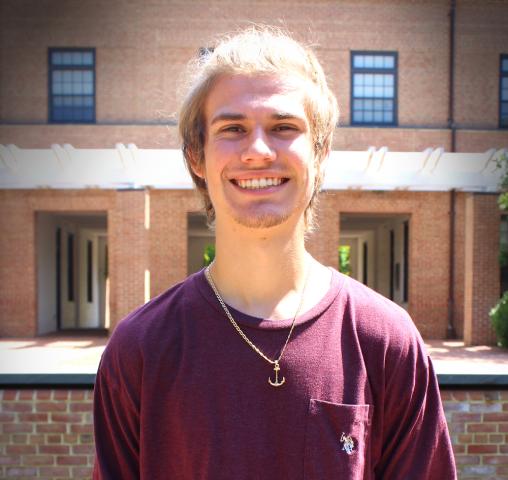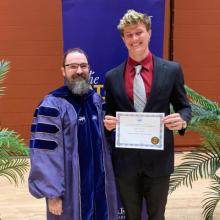
St. Mary’s College’s annual St. Mary’s Undergraduate Research Fellowship (SURF) program provides students opportunities to engage deeply in independent research, laboratory, and creative work across disciplines, under the guidance and with the expertise of faculty mentors.
Titled “The Future of Solar Technology: Printing Nanomaterials,” chemistry major Bradley Moore’s ’20 research focused on applying nanotechnology to solar panels.
Ink-jet printing of electronics is now more relevant due to advances in nanotechnology, compared to spin coating. Recent studies show the success of solution-processed solar cells through spin-coating, where a liquid solution containing nanocrystals is evenly applied to a spinning substrate, limits the size of the substrate to one square inch. Research on ink-jet printing of electronics may allow faster printing on larger substrates.
During Moore’s research, he developed a method of printing semi-conducting and conducting nanocrystal films. Working with faculty mentor Troy Townsend ’07, assistant professor of chemistry, he developed 2D patterns that could be printed while controlling the jetting profile and drop-spacing of the solutions, creating a device that consists of two semi-conducting layers, sandwiched by two that are conductive. Functional printed films were characterized using atomic force microscopy to determine layer thickness as well as optical microscopy to examine surface morphology.
According to Moore, “If we do the layers correctly, that will make a solar panel that would be 40 times thinner than a human hair.”
Moore joined Townsend’s research group at the beginning of spring 2019 semester, developing the inks during the school year. He joined SURF over the summer, focusing his research on the printer segment of his project.
“I love working with Dr. Townsend. It’s pretty collaborative working with him, going back and forth, asking him about problems that we are facing,” said Moore.



